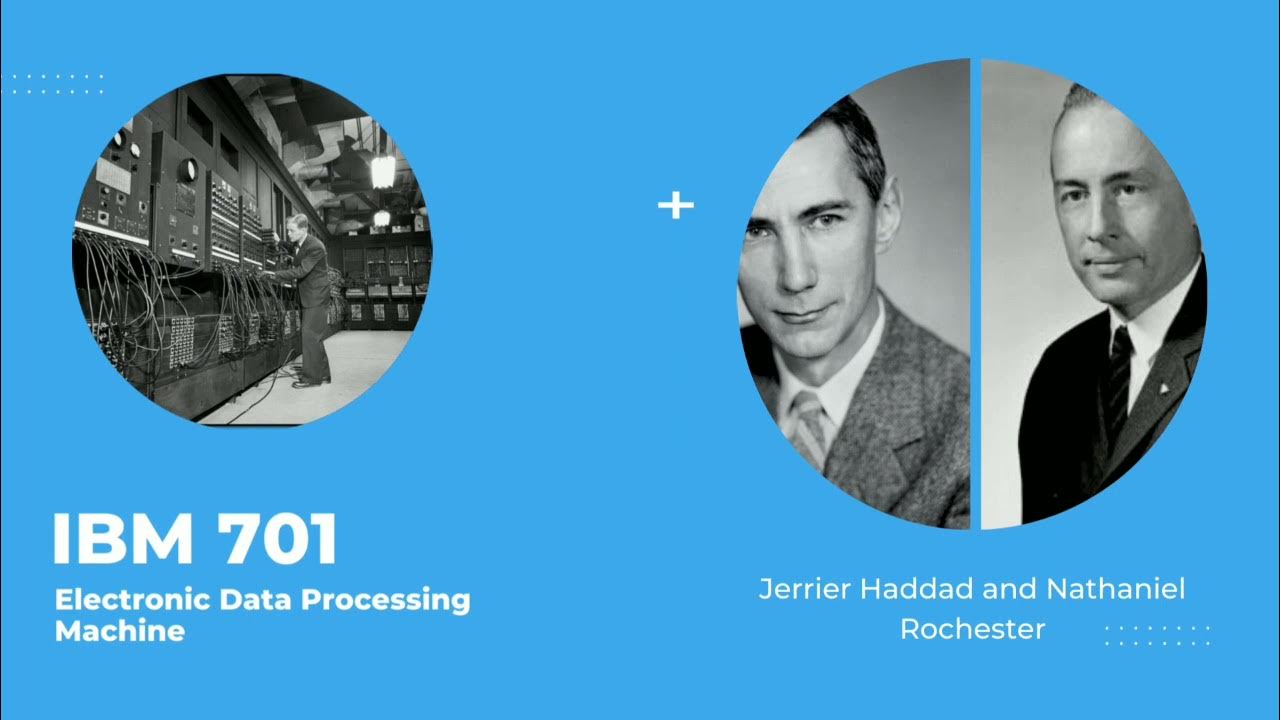History of Computer| Introduction to Computer|CCC Exam April-May 2023|CCC Exam Preparation in Hindi
Summary
TLDRThe video covers the history of computers, starting with the invention of the abacus, followed by important milestones such as the development of Pascal's calculator, Charles Babbage's Difference and Analytical Engines, and the invention of punch cards. It also discusses early electronic computers like ENIAC and UNIVAC, as well as the evolution of microprocessors, starting with Intel's 4004. Throughout the video, key questions are posed to help viewers prepare for exams, and there is encouragement to engage by commenting answers and subscribing for more content related to computer technology and programming.
Takeaways
- 🖥️ The history of computers begins with the invention of the abacus, developed in China around 1450, as the first known computational device.
- 🔢 John Napier invented logarithms (Napier's Bones) in 1617, used for multiplication, carved from bones.
- ➕ Blaise Pascal invented the first mechanical adding machine in 1642, which could perform addition and subtraction only, known as the Pascaline.
- ⚙️ Charles Babbage, the 'Father of Computers,' invented the Difference Engine in 1822, a steam-powered machine used for calculations.
- 💻 Charles Babbage also developed the Analytical Engine, the first automatic machine to use punch cards for instructions, laying the foundation for modern computers.
- 👩💻 Ada Lovelace is recognized as the world's first computer programmer for writing an algorithm for Babbage’s Analytical Engine.
- 📊 Herman Hollerith invented the Census Tabulating Machine in 1890, using punch cards to store data, which revolutionized the American census.
- 🖨️ The Mark I was the first fully automatic electro-mechanical computer built in 1946 by Howard Aiken and IBM, used for complex calculations.
- 🔌 ENIAC, developed by John Presper Eckert and John Mauchly in 1946, was the world’s first fully electronic computer.
- 🖥️ Intel introduced the first microprocessor, the Intel 4004, in 1972, marking the beginning of the microcomputer era.
Q & A
What was the first calculating device mentioned in the script?
-The first calculating device mentioned in the script is the abacus, invented in China around 1450.
Who invented the 'Bigg Boss' calculating tool, and what was its function?
-'Bigg Boss' was invented by John Napier in 1617 in Scotland, and its primary function was multiplication.
What is the Pascaline machine, and who invented it?
-The Pascaline machine was the first mechanical adding machine invented by Blaise Pascal in 1642. It could only add and subtract.
Why is Charles Babbage known as the 'Father of Computer Science'?
-Charles Babbage is known as the 'Father of Computer Science' because he invented the Difference Engine in 1822, which performed calculations using steam power.
What is a punch card, and who invented it?
-A punch card is a piece of paper with holes punched to store data. It was invented by Charles Babbage in 1842 for use in the Analytical Engine.
Who is considered the first computer programmer, and why?
-Ada Lovelace is considered the first computer programmer because she wrote the first algorithm intended for Charles Babbage's Analytical Engine.
What is the significance of the ENIAC computer?
-ENIAC was the first fully electronic general-purpose computer, built in 1946 by American scientists J.P. Eckert and John Mauchly.
What was the first commercial computer, and when was it invented?
-The first commercial computer was the UNIVAC, invented in 1954 by the company UNIVAC for business and general-purpose use.
Which company created the first microprocessor, and when?
-Intel created the first microprocessor, the Intel 4004, in 1971. This innovation led to the development of smaller computers.
What role did microprocessors play in the development of computers?
-Microprocessors allowed the development of smaller, more efficient computers, known as microcomputers, reducing the size and complexity of earlier computers.
Outlines

This section is available to paid users only. Please upgrade to access this part.
Upgrade NowMindmap

This section is available to paid users only. Please upgrade to access this part.
Upgrade NowKeywords

This section is available to paid users only. Please upgrade to access this part.
Upgrade NowHighlights

This section is available to paid users only. Please upgrade to access this part.
Upgrade NowTranscripts

This section is available to paid users only. Please upgrade to access this part.
Upgrade NowBrowse More Related Video

Evolution of Computers

History of Computers – How were Computers Invented Short Documentary Video

How Computers Evolved? History Of Computers From 1642 To 2022

कंप्यूटर का आविष्कार कब और किसने किया ? HISTORY AND INVENTION OF COMPUTER.

Evolution of Operating System (OS)

कंप्यूटर क्या होता है? | Computer के प्रकार | Input और Output Device Part of Computer ki Generation
5.0 / 5 (0 votes)